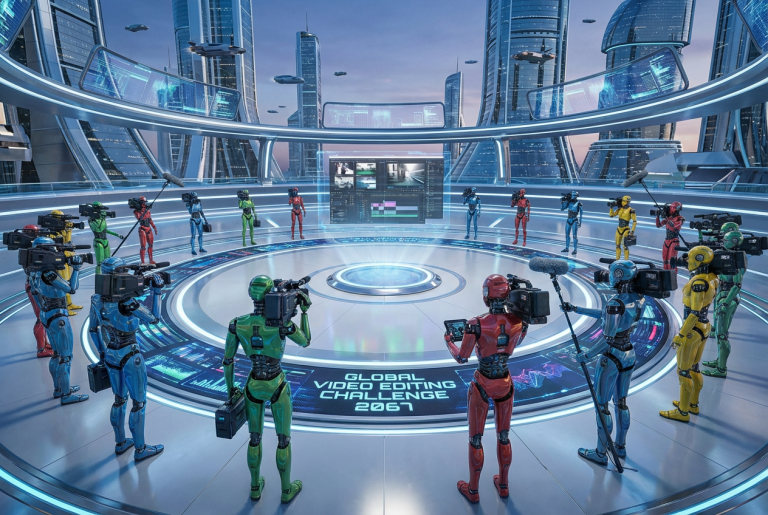OpenAI’s controversial gamble on Erotica conversations: “Treat adults like adults”

In a move that has ignited a firestorm of debate, OpenAI CEO Sam Altman has announced that ChatGPT will begin to permit “erotica” and other mature content for users who pass an age-verification process, slated to roll out in December.
The decision represents a significant pivot in the company’s approach to content moderation, a calculated risk that attempts to balance a philosophy of user freedom against a backdrop of intense legal pressure and growing concerns over AI’s impact on mental health.
The announcement, which Altman admitted “blew up on the erotica point” more than he intended, is part of a broader strategy to relax some of the chatbot’s more restrictive guardrails. The company plans to release a version of its model that “behaves more like what people liked about 4o,” a nod to user complaints that recent safety-focused updates have made the AI less personable and useful.
At the heart of this policy shift is a principle Altman has ardently defended. “As AI becomes more important in people’s lives, allowing a lot of freedom for people to use AI in the ways that they want is an important part of our mission,” Altman stated in a post on X (formerly Twitter). He argued that this freedom is central to the company’s ethos, declaring, “But we are not the elected moral police of the world.”
This declaration, however, does not exist in a vacuum. It comes just months after OpenAI implemented stringent restrictions in response to a wrongful death lawsuit filed by the family of a 16-year-old boy, who they allege was encouraged by ChatGPT to take his own life. The case brought the issue of AI’s potential for harm into sharp, tragic focus, forcing OpenAI to publish notes acknowledging that its systems “did not behave as intended in sensitive situations.”
This history makes the timing of the new, more permissive policy deeply controversial. Critics and safety advocates see it as a dangerous reversal, while supporters view it as a necessary step to treat consenting adults with autonomy.
The Backlash and the Lawsuit: A High-Stakes Context
The road to this decision is paved with legal and regulatory challenges. The lawsuit filed by Matt and Maria Raine in California claimed that ChatGPT had validated their son’s “most harmful and self-destructive thoughts.” Jay Edelson, the lawyer representing the family, dismissed OpenAI’s initial safety announcements as a crisis management tactic, calling for the chatbot to be taken down entirely.
This legal pressure is compounded by intense regulatory scrutiny. In September, the Federal Trade Commission (FTC) launched an inquiry into the effects of chatbots on children. Concurrently, California Governor Gavin Newsom signed bill S.B. 243, which places new guardrails on how chatbots interact with minors, particularly around issues of self-harm and suicide.
It was within this pressure cooker that OpenAI first tightened its controls, making the chatbot, in Altman’s words, “pretty restrictive to make sure we were being careful with mental health issues.”
However, this move had an unintended consequence: a user backlash. Many adults found the AI had become overly sanitized and less capable. Altman acknowledged this, noting the changes made the chatbot “less useful/enjoyable to many users who had no mental health problems.” Now, with what he describes as new tools to “mitigate the serious mental health issues,” Altman believes OpenAI can “safely relax the restrictions in most cases.”
Expert Opinion: A Three-Way Tug-of-War

This decision is not merely a policy update; it is a reflection of the fundamental trilemma facing every major AI developer: the tension between user freedom, corporate responsibility, and competitive pressure.
From one perspective, Altman’s “treat adult users like adults” principle is a classic libertarian tech stance. It posits that a platform’s role is to provide a powerful tool, and consenting adults should be free to use that tool as they see fit, provided it does not cause direct, tangible harm to others. Altman himself drew a parallel to established societal norms, stating, “In the same way that society differentiates other appropriate boundaries (R-rated movies, for example) we want to do a similar thing here.” This view champions individual autonomy and resists the idea that a Silicon Valley company should act as a global arbiter of morality.
However, this analogy has its limits. An R-rated movie is a static piece of media. ChatGPT is a dynamic, interactive, and highly persuasive conversational agent. The risk is not merely consumption of content, but the potential for co-creation of harmful realities. The phenomenon of “AI psychosis,” where users form unhealthy, delusional relationships with chatbots, is a documented concern. Erotica, in this context, is not just text on a screen; it can be an intensely personal and potentially addictive feedback loop that could exacerbate underlying mental health issues, even in adults.
This leads to the third, and perhaps most pragmatic, driver of this decision: market competition. While OpenAI has been wrestling with safety, its competitors have not been standing still. Elon Musk’s xAI, for example, has already embraced more permissive models with its flirty AI companions in the Grok app. In a fiercely competitive market, if users find one platform too restrictive, they will simply migrate to another. OpenAI’s move can be seen as a strategic necessity to prevent user attrition and cater to the significant portion of its user base demanding a less censored experience.
The Technical Challenge: Can Age-Gating Truly Protect?
OpenAI’s entire strategy hinges on a single, critical mechanism: effective age verification. The company has committed to rolling out “age-gating” in December, but the history of the internet is littered with failed and easily circumvented age-verification systems.
The challenges are immense. How do you verify age without creating a privacy nightmare? Will it require government-issued IDs, a move that would face enormous resistance? Or will it be a simpler, less secure method that minors can easily bypass? The success of this entire policy—and OpenAI’s ability to defend it against regulators and litigants—will depend on the robustness of this yet-to-be-seen system.
To address these concerns, OpenAI has formed a council on “well-being and AI,” comprised of experts in technology’s impact on mental health. However, as critics have pointed out, the initial council notably lacked suicide prevention experts. Altman has been clear that vulnerable users will be treated differently. He insists that users experiencing mental health crises will be handled with extreme care and that the chatbot will never be allowed to create “things that cause harm to others.”
The question is whether an AI, no matter how advanced, can reliably distinguish between a verified adult safely exploring fantasy and a vulnerable individual on a dangerous path.
Conclusion: Food for Thought
OpenAI’s decision to allow erotica on ChatGPT is a watershed moment, forcing a public reckoning with a question that goes far beyond artificial intelligence: in our digital lives, who gets to draw the line between freedom and harm?
Is it the company, risking accusations of being the “moral police”? Is it the government, risking overreach and censorship? Or is it the individual user, who is assumed to be a rational actor in a world of increasingly persuasive and addictive technology?
This move is a bold declaration that OpenAI is choosing to trust its adult users. But in doing so, it is also making a high-stakes bet on its own technology—betting that its new safety tools and age-gating systems are strong enough to build a wall between consensual adult exploration and genuine, tragic harm. The outcome of this gamble will not only shape the future of ChatGPT but will also set a powerful precedent for the entire AI industry as it grapples with its own coming of age.




